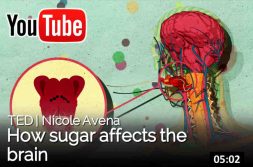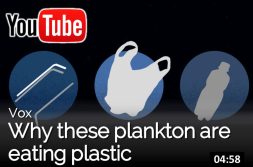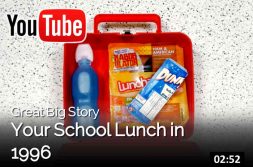Eating habits
Questions
1. How much do you enjoy eating?
2. How many times a day do you eat?
3. What time do you have breakfast? Lunch? Dinner?
4. What time of the day do you most enjoy eating?
5. Where in your house is your favourite place to eat?
6. Do you like watching TV while you eat?
7. Are there any rules in your house when you eat?
8. Are you a slow or fast eater?
9. What eating manners do you have in your country that you like and dislike?
10. Are there any rules in your country about eating in public?
11. Describe a typical breakfast, please.
12. What did you have for lunch yesterday?
13. What will you have for dinner tonight?
14. What do you eat if you feel a little hungry?
15. Do you eat meat, fruits, and vegetables every day?
16. What eating habit would you like to change?
Videos
[more]
Lesson by Nicole Avena, animation by STK Films.
[less]
When you think of marine pollution, you might picture an oil-slicked seal struggling to breathe on a blackened
[more]
Microplastics — meaning any plastic object smaller than five millimeters — constitute the vast majority of plastic particles polluting marine habitats.
Of those microplastics, a large share are microfibers: tiny strands of plastic that are woven into fabric used to make clothing. These fabrics, known by names like polyester and nylon, are cheap to produce, comfortable to wear, and since arriving on the market in the late 1940s, companies have been using more and more of them. Every time we do laundry, a small amount of microfibers are separated from clothes made from these materials. Since those pieces of plastic are extremely small, they’re able to make their way through water treatment centers and into marine resources. Once they reach marine habitats, the ocean’s tiniest creatures consume them, and microfibers work their way up the food chain. Eventually, they reach us.
[less]
[more]
[less]


